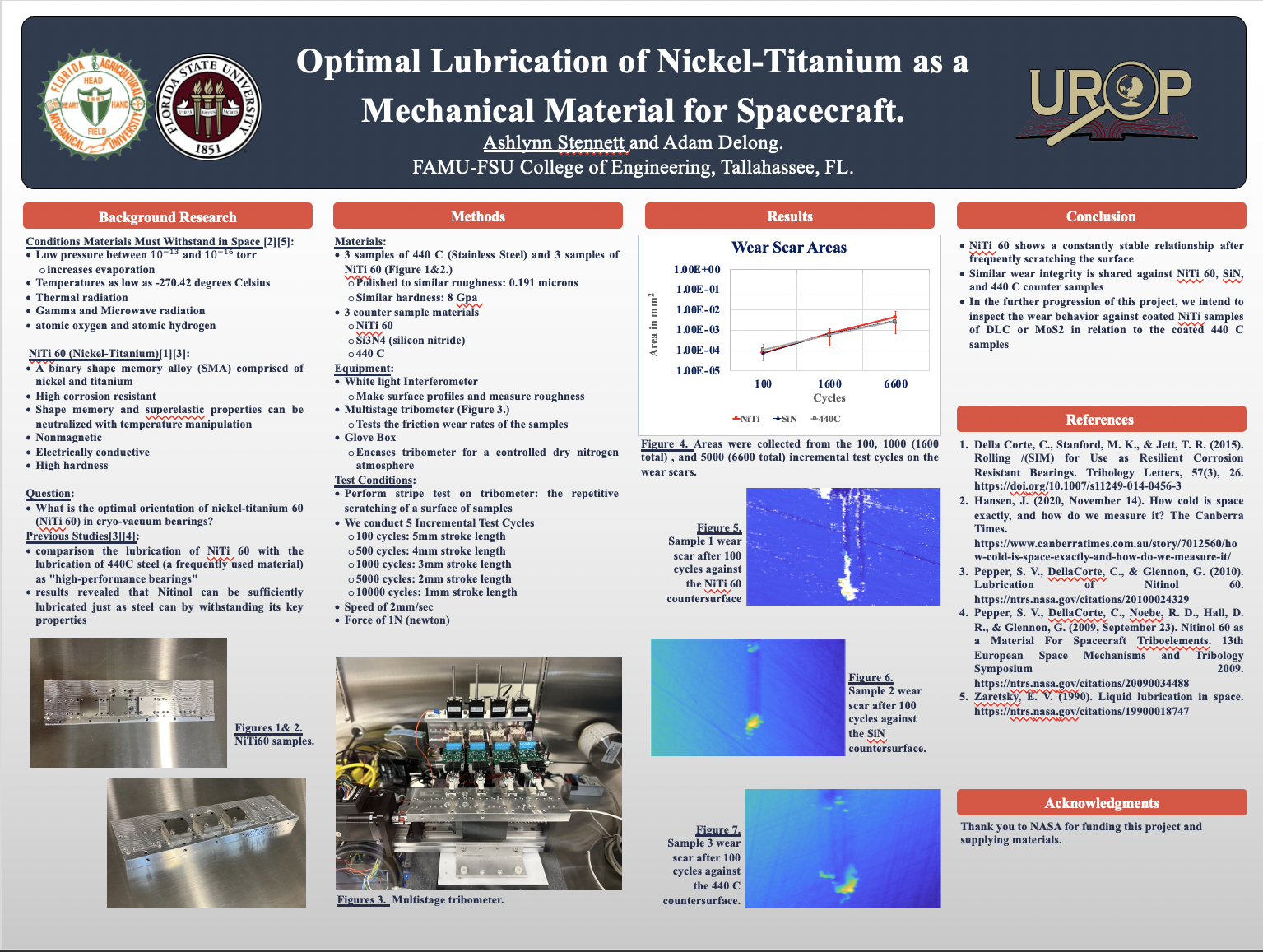Research Symposium
23rd annual Undergraduate Research Symposium, April 6, 2023
Ashlynn Stennett Poster Session 2: 1:30 pm - 2:30 pm/ Poster #130

BIO
I am a first-year Pure Mathematics student with a minor in Computer Science from Tallahassee, FL. While attending Florida State University, I have maintained and 3.89 GPA. I am a current member of the National Society of Collegiate Scholars, the Association for Women in Mathematics, and the University Honors Program. This year maybe my first encounter with the UROP program, but it is not my first experience with research. Previously, I participated in my high school science fair, as well as, the Capital Regional Science and Engineering Fairs and placed on several different occasions over the years. I've also had the privilege to be a part of FAMU Program of Excellence in STEM for 4 years, which taught me more about the significance of science, technology, engineering, and mathematics. I was accompanied through various learning experiments and my own research projects. This past Fall I was able to present a project in the 2022 MSEIP Student Research Conference. I am now a program mentor, where I guide and encourage other high school students through STEM. In the future, I'd like to attend graduate school to achieve my aspirations of becoming a mathematician and hope to be apart new fundamental research.
Optimal Lubrication of Nickel-Titanium as a Mechanical Material for Spacecraft
Authors: Ashlynn Stennett, Adam DelongStudent Major: Mathematics (Pure)
Mentor: Adam Delong
Mentor's Department: Mechanical Engineering Mentor's College: FAMU-FSU College of Engineering Co-Presenters: N/A
Abstract
In space, there are much harsher conditions present than those that typically reside on earth. Temperatures ranging as low as -270.42 degrees Celsius, intense thermal radiation, atomic oxygen, and pressures between 10^(−13) and 10^(−16) torr are all complications that can potentially obstruct the stability of a standard mechanical material. Extremely cool temperatures can make materials brittle and easy to damage, while levels of radiation can make them overheat or experience substantial levels of ionization. Atomic oxygen is a primary cause of erosion, because of its highly reactive nature, as well as low pressures that increase rates of evaporation. Nickel-titanium or NITINOL (Nickel Titanium Naval Ordnance Laboratory), specifically NITINOL60 (NiTi 60), has emerged as an innovative candidate to potentially serve as a bearing material for future spacecraft. NiTi 60 is a binary shape memory alloy (SMA) comprised of a unique set of properties including high hardness and high corrosive resistance. When lubricated, we believe it will produce the utmost optimal performance. We seek to discover benefits from coatings such as diamond-like carbon (DLC) and molybdenum disulfide (MoS2) on NiTi 60 that may produce a durability that’s superior to other mechanical materials. The intention was to test both coated and uncoated samples of Niti 60 on a multistage linear tribometer against counter samples to observe wear rates. After testing uncoated samples, we concluded that NiTi 60 has consistent wear properties against different counter surfaces.
Keywords: Lubrication, Nickel-Titanium, Spacecraft


